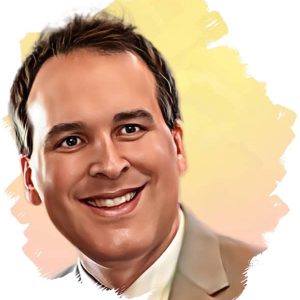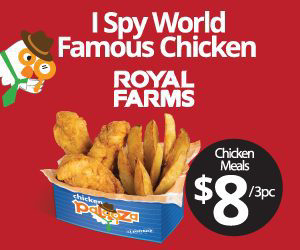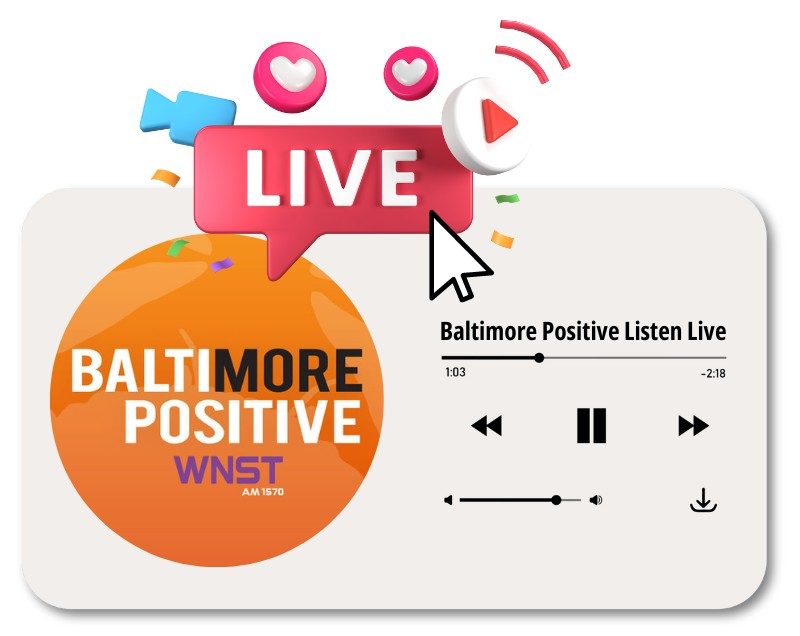What’s left to say about the great Ed Reed that hasn’t already been shared in recent days by so many talented writers and those who know the Ravens legend best?
The nine-time Pro Bowl safety and 2004 Defensive Player of the Year officially took his place in Canton Saturday and goes down as at least the most exciting player in Ravens history. As John Harbaugh said recently, if you were to break the Pro Football Hall of Fame itself into tiers, Reed would be among the very best of the best to ever play the game and quite possibly the greatest free safety we’ve ever seen.
My experiences covering Reed’s final years with the Ravens are special to me, but they’re pretty ordinary as media interactions go.
I remember a sweltering afternoon practice in Westminster in 2010 in which Reed wasn’t taking part. As I watched with another reporter or two, Reed strolled to the sideline and put an arm around me asking how I was doing, chatting with us for a couple minutes. I’m sure he confused me with someone else since my interactions with him to that point in my very young media career consisted of no more than an ordinary question or two in a press conference, but a know-nothing reporter living his dream wasn’t about to correct Ed Reed! As I would witness covering one of his football camps or simply watch him interact with so many fans over the years, perhaps he was just being friendly to an unfamiliar face.
One of my favorite memories covering Super Bowl XVLII came in the bowels of the Superdome long after the game had ended and Reed had lifted the Vince Lombardi Trophy for the first time. Only a few reporters remained in the locker room with the 11th-year safety being one of the last players who hadn’t yet left for the team party, but he granted a final interview as he put on a three-piece suit — now complete with a Super Bowl champions cap. The questions and answers were inconsequential, but I’ll never forget that combination of joy and exhaustion over his face as a brilliant career that needed no validation had still received its satisfying exclamation point. It was a privilege to witness such a moment.

I’ll always appreciate those experiences, but what I remember most about Reed took place long before I was fortunate enough to work in the media or had ever met him. It’s the kind of personal story to which others can likely relate and reminds us why sports are both inconsequential and so precious, even when we’re simply watching our favorite athletes and favorite teams from afar.
My father passed away suddenly on Nov. 1, 2004, just a day after we’d watched a Ravens game — a frustrating loss in Philadelphia — as we had every autumn weekend since 1996. To offer an idea of how much Baltimore sports meant to him, he was dressed in his Ravens jersey for the viewing and memorial service. To know what kind of father he was, he passed on working the 1983 World Series as an usher at Memorial Stadium to instead watch at home with his son born earlier that month, a decision he repeatedly said he never regretted despite plenty of prodding over the years. He was my hero, my best friend, and the man I strive to be like to this day.
One of Dad’s closest friends invited me to attend that Sunday’s game against Cleveland. I graciously accepted the invitation while privately considering how difficult it might be since I could count on one hand the number of Orioles and Ravens games I’d attended without my dad in our 21 years together.
It turned out to be a typical Kyle Boller era game with the Ravens holding a narrow lead and Jeff Garcia and the Browns driving for the potential game-tying touchdown in the final minute. Many Ravens fans could probably tell you what happened next as Reed picked off a deflected pass from his shoe tops in the end zone and sprinted an NFL-record 106 yards for a touchdown to put away the victory, a play still remembered as one of the very best of his career.
In the moments following the initial joy and excitement from such an unbelievable play, my dad’s friend put his arm around me and I received a few text messages from close friends with the same refrain:
That one was for your dad.
The play itself wasn’t divine intervention as such a label would probably be an insult to Reed’s special talents and to God, who would have no reason to be picking on the already-hapless Browns. But I do believe it was a message from my dad, telling me he’d always be with me and I’d continue enjoying the things we always loved together — like watching Baltimore sports. I cried plenty that week, but not like I did from the time the emotions of that message hit me until we were halfway home, which had to be quite a scene for the many nearby fans exiting the stadium in celebration.
Watching that extraordinary play at that moment in my life is why I’ll always view Reed differently than any athlete I’ve ever appreciated watching. It’s an example of why sports hold such a special place in so many of our lives as an escape from financial troubles, sickness, relationship problems, and, yes, even the death of a loved one. Reed mentioning his late brother in his induction speech Saturday and how he played through that grief in the 2010 postseason reinforces that none of us are immune to such heartache — even one of the greatest players of all time — but that sports can provide that temporary reprieve from reality.
Reflecting on Reed this weekend, I couldn’t help but think of how many people he — and so many other special athletes — have knowingly or unknowingly touched with charitable endeavors, community involvement, autograph signings, or by merely providing a special memory on the field to someone struggling in his or her life. This November will mark 15 years since my father’s passing, but I’ll always view that play in that game as a meaningful part of my grieving process.
Congratulations, Ed, and thank you for that joy you brought — and the reflection it prompted — at the end of the toughest week of my life.

Luke Jones
Luke Jones is the Ravens and Orioles beat reporter for WNST BaltimorePositive.com and is a PFWA member. His mind is consumed with useless sports knowledge, pro wrestling promos, and movie quotes, but he often forgets where he put his phone. Luke's favorite sports memories include being one of the thousands of kids who waited for Cal Ripken's autograph after Orioles games in the summer of 1995, attending the Super Bowl XXXV victory parade with his dad in the pouring rain, and watching the Terps advance to the Final Four at the Carrier Dome in 2002. Follow him on social media @BaltimoreLuke or email him at Luke@wnst.net.
Podcast Audio Vault
Right Now in Baltimore
Lamar Jackson once again sidelined from Ravens practice with lingering illness
"It’s just an unpredictable deal. You guys have been sick before and sometimes it’s not easy, so that’s what we’re dealing with."
Finding the players who make the coaches smile in Owings Mills
Lots of fans, lots of autographs and young players trying to make a name for themselves and impress coaches. Another summer of Ravens training camp in Owings Mills as Luke Jones and Nestor discuss the nuance of July "statistics" and…
High anxiety at Camden Yards as Orioles look to deal for pitching
A massive weekend ahead for the Baltimore Orioles host the San Diego Padres and Mike Elias searches to improve the pitching arsenal for a first-place team that can win the World Series. Luke Jones and Nestor discuss the unrest associated…
























